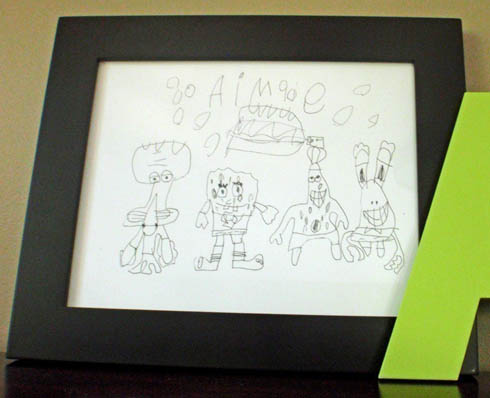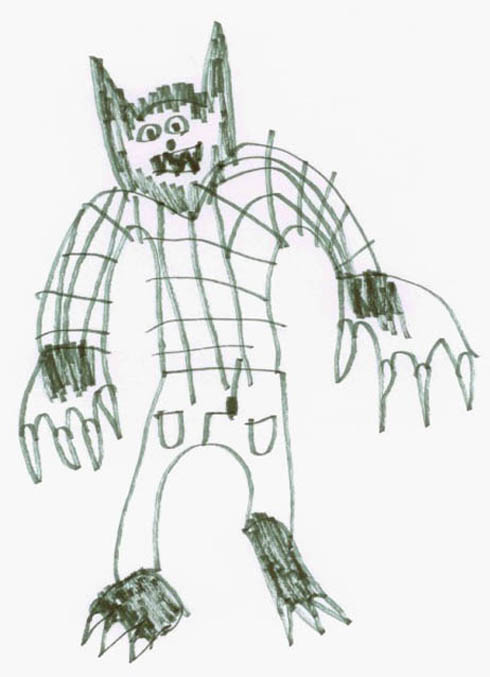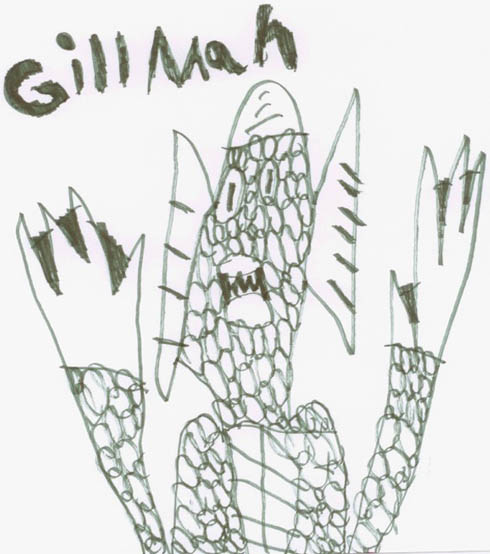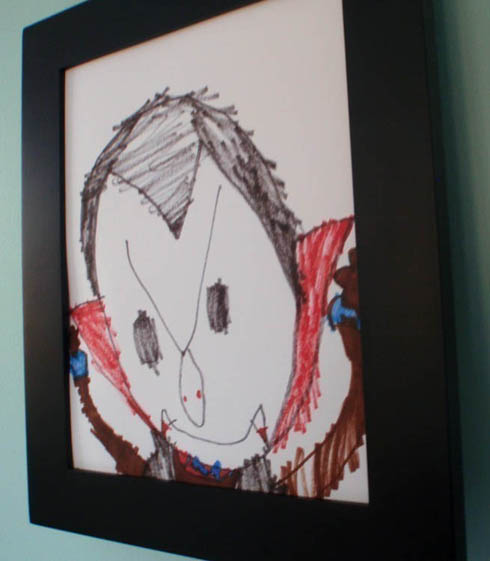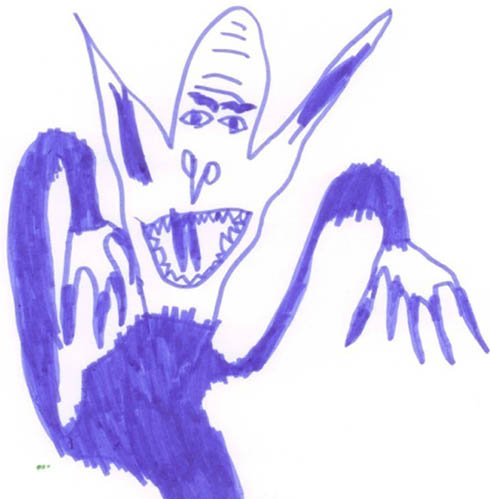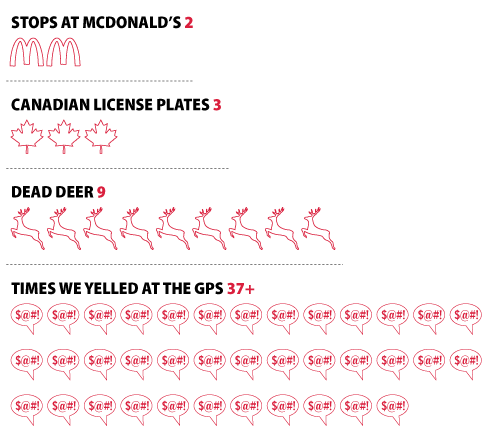A friend and former colleague tweeted this late on Sunday night: “5 yr-old w/ leukemia is selling his drawings of monsters to pay for chemo.”
So, I went to the Etsy account, and the pictures were a scream:
Aren’t those amazing? The kid is five, and you can tell he’s got a great sense of humor already. Especially when you consider the boy is fighting acute lymphoblastic leukemia.
He was diagnosed on Sept. 11. His mother was pregnant with her second child, and had been a stay-at-home mom. His father, Wylie Reed, had insurance, but the costs were going to be steep. He’d need to take time off to be with Aidan, and the chemo treatments would come with a $250 co-pay each time. The Reed family was already living on a tight budget, so the only thing they could cut next would be the house payment.
So, Wylie’s sister, Mandi Ostein, set up an Etsy account to sell her nephew’s drawings. She said she wanted to sell just 60 at $12 each. It wouldn’t be much, but it would help a little bit.
Since Sept. 17, she’s sold more than 5,000. They’ve sold so many, they’re working just to keep up with the back orders:
Due to overwhelming response, Aidan will be unable to fill special requests or sign pictures. Drawing is something Aidan does for fun and while we apologize for the inconvenience, the last thing we want to do is turn it into a “job.” Thank you again for your support.
To me, there are three heroes in this story:
- Aidan, whose goofy nature and fighting spirit have continued despite the treatments
- Aunt Mandi, whose desire to help saved her brother from having to sell the house and take on a second job
- Strangers, who acted after being touched and wanted to help, whether it be by purchasing a picture or writing a letter of encouragement
Indeed, the strangers who bought the prints are key to this story being so heart-warming. Sure, we can relate to having to face tough things, but not everyone can relate to facing chemo, and probably not when we’re five. We can relate to the aunt, who wants to do something to help. But the fact that enough people bought prints — more than 400 times what Mandi wanted to sell — will mean a lot to the average reader. We see that enough people were like what we’d want to be ourselves: moved to action despite having no personal connection to the situation. So often, we think of strangers as people to fear for any number of reasons: they could be identity thieves, terrorists, sex offenders, hipsters, etc. I think we like these stories because we like getting assurance that our assumptions about strangers aren’t always true.
Of course, it doesn’t hurt that this kid is a total badass. To get a sense of Aidan’s personality, check out the video of ABC News’ John Berman’s visit to Aidan. My favorite part is around the 1:13 mark, where Berman is looking at a picture Aidan drew:
John Berman: What’s this?
Aidan: The doctor giving me a shot, and I’m really, really tough.
Berman: You’re really, really tough in this picture?
Aidan: Yeah.Aidan: (voiceover) It’s not really fun to get shots.
After that exchange, how can you not love this kid?
Aidan’s story has been covered by The Wichita Eagle, MSNBC and The Oregonian, just to name a few news organizations. To see the family’s blog, click here. To see the “Aid for Aidan” Facebook page, click here.

